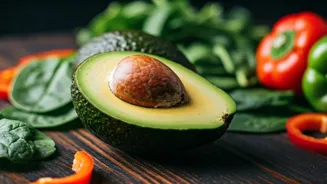Understanding Calorie Accumulation
Weight gain isn't always an overnight event; instead, it usually happens because of consuming more calories than the body utilizes. This imbalance creates
an excess of energy, which the body then stores as fat. Think of it like a bank account: if you deposit more than you withdraw, your balance increases. Similarly, when your body takes in more calories than it expends, the excess calories are stored as fat. Over time, small, seemingly insignificant excesses can contribute to considerable weight gain. This is because calories add up over time. So, one must be mindful of their daily caloric intake and ensure it aligns with their activity level and metabolic rate. Regular monitoring and adjustments based on individual needs are key to preventing the slow accumulation of unwanted fat deposits.
The Key to Fat Loss
The primary key to losing stubborn fat for individuals over 30 lies in adopting a well-structured, calorie-controlled diet that aligns with their lifestyle and physical condition. This means that a diet that emphasizes whole, unprocessed foods can be especially beneficial. These kinds of foods are usually rich in essential nutrients and fiber, leading to increased satiety and curbing overeating. For example, lean proteins, vegetables, and whole grains are better choices over highly processed foods. Portion control is also essential to maintaining a caloric deficit, ensuring the body utilizes stored fat for energy. It's also equally important to pair the diet with regular physical activity. This combination creates a more significant metabolic effect and helps preserve lean muscle mass, which is particularly important for individuals over 30 as muscle mass naturally declines with age.













